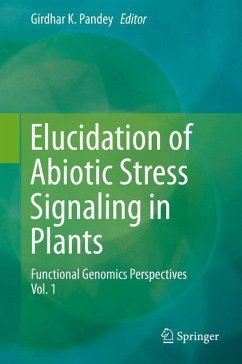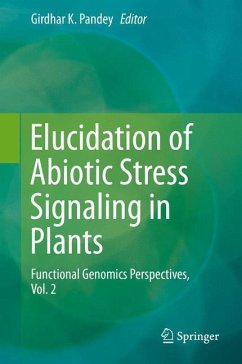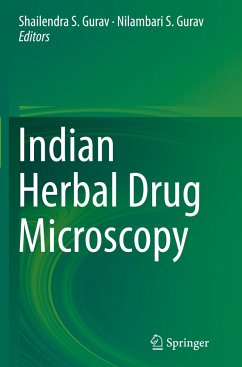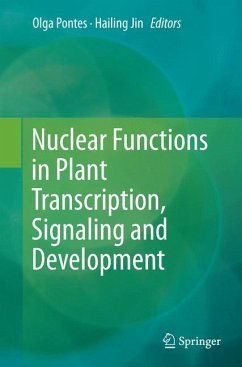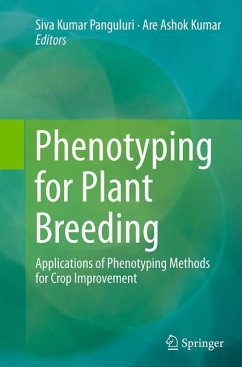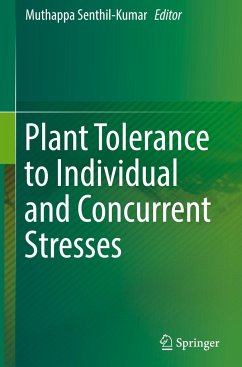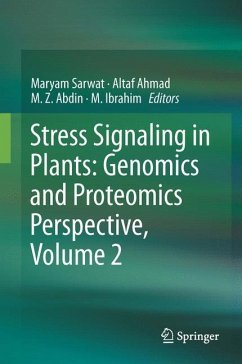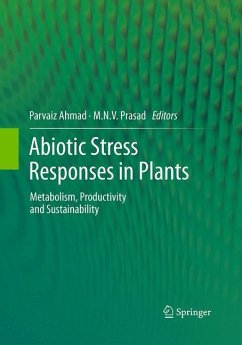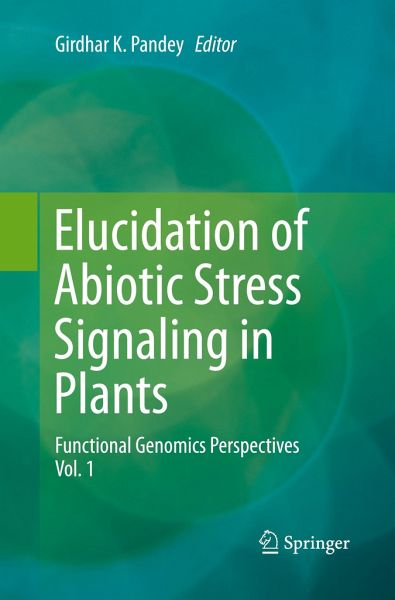
Elucidation of Abiotic Stress Signaling in Plants
Functional Genomics Perspectives, Volume 1
Herausgegeben: Pandey, Girdhar K.
Versandkostenfrei!
Versandfertig in 6-10 Tagen
113,99 €
inkl. MwSt.

PAYBACK Punkte
57 °P sammeln!
Abiotic stresses such as high temperature, low-temperature, drought, and salinity limit crop productivity worldwide. Understanding plant responses to these stresses is essential for rational engineering of crop plants. In Arabidopsis, the signal transduction pathways for abiotic stresses, light, several phytohormones and pathogenesis have been elucidated. A significant portion of plant genomes (most studies are Arabidopsis and rice genome) encodes for proteins involves in signaling such as receptor, sensors, kinases, phosphatases, transcription factors and transporters/channels. Despite decade...
Abiotic stresses such as high temperature, low-temperature, drought, and salinity limit crop productivity worldwide. Understanding plant responses to these stresses is essential for rational engineering of crop plants. In Arabidopsis, the signal transduction pathways for abiotic stresses, light, several phytohormones and pathogenesis have been elucidated. A significant portion of plant genomes (most studies are Arabidopsis and rice genome) encodes for proteins involves in signaling such as receptor, sensors, kinases, phosphatases, transcription factors and transporters/channels. Despite decades of physiological and molecular effort, knowledge pertaining to how plants sense and transduce low and high temperature, low-water availability (drought), water-submergence and salinity signals is still a major question before plant biologists. One major constraint hampering our understanding of these signal transduction processes in plants has been the lack or slow pace of application of molecular genomic and genetics knowledge in the form of gene function. In the post-genomic era, one of the major challenges is investigation and understanding of multiple genes and gene families regulating a particular physiological and developmental aspect of plant life cycle. One of the important physiological processes is regulation of stress response, which leads to adaptation or adjustment in response to adverse stimuli. With the holistic understanding of the signaling pathways involving not only one gene family but multiple genes or gene families, plant biologists can lay a foundation for designing and generating future crops that can withstand the higher degree of environmental stresses (especially abiotic stresses, which are the major cause of crop loss throughout the world) without losing crop yield and productivity.




